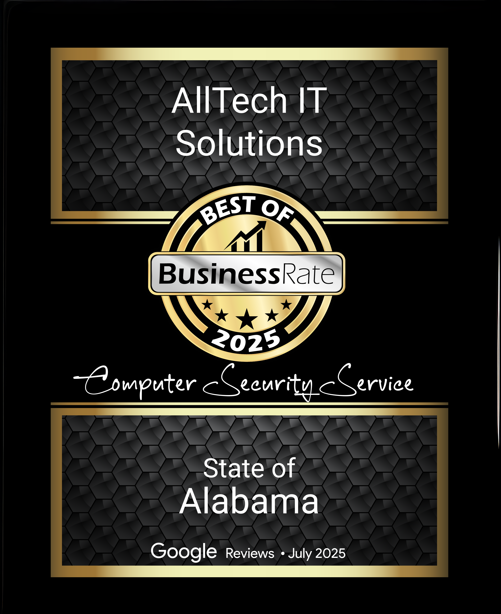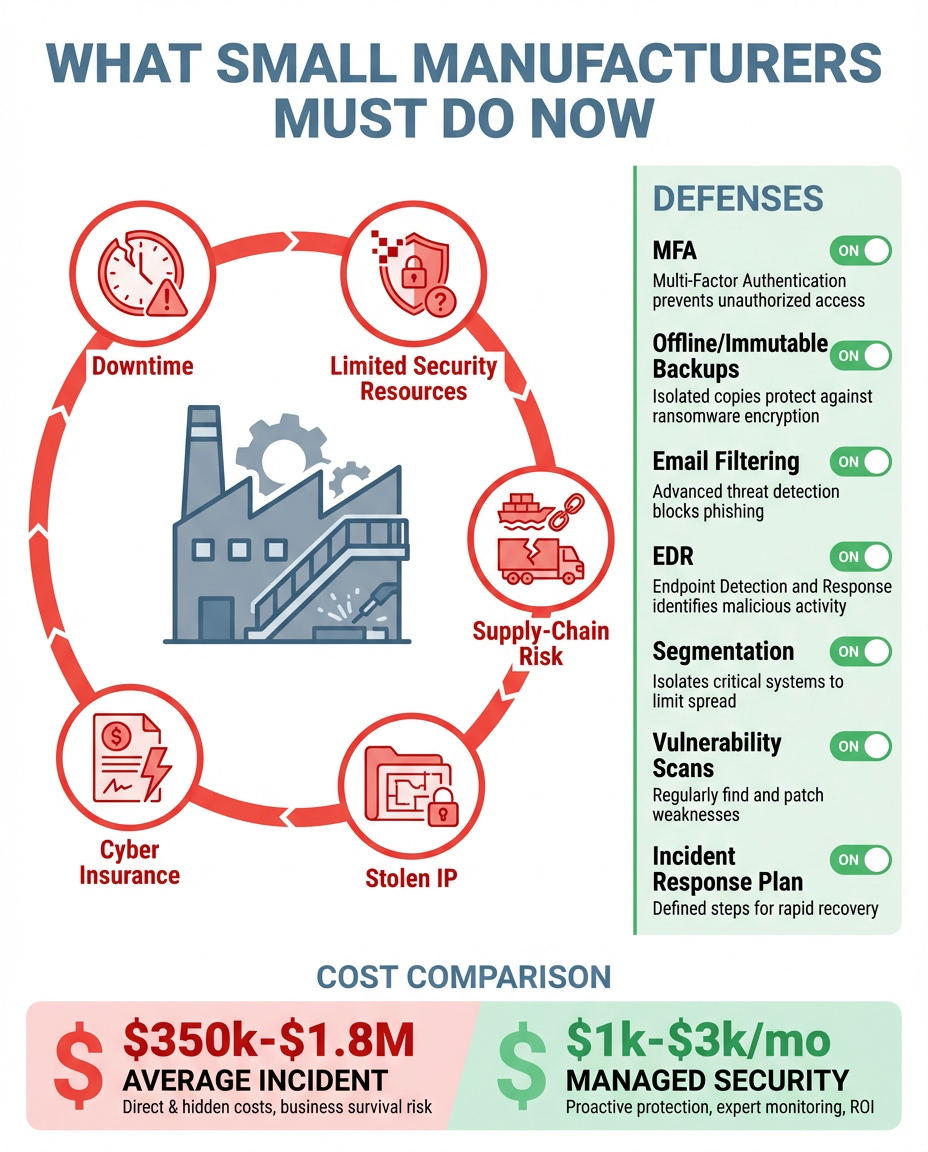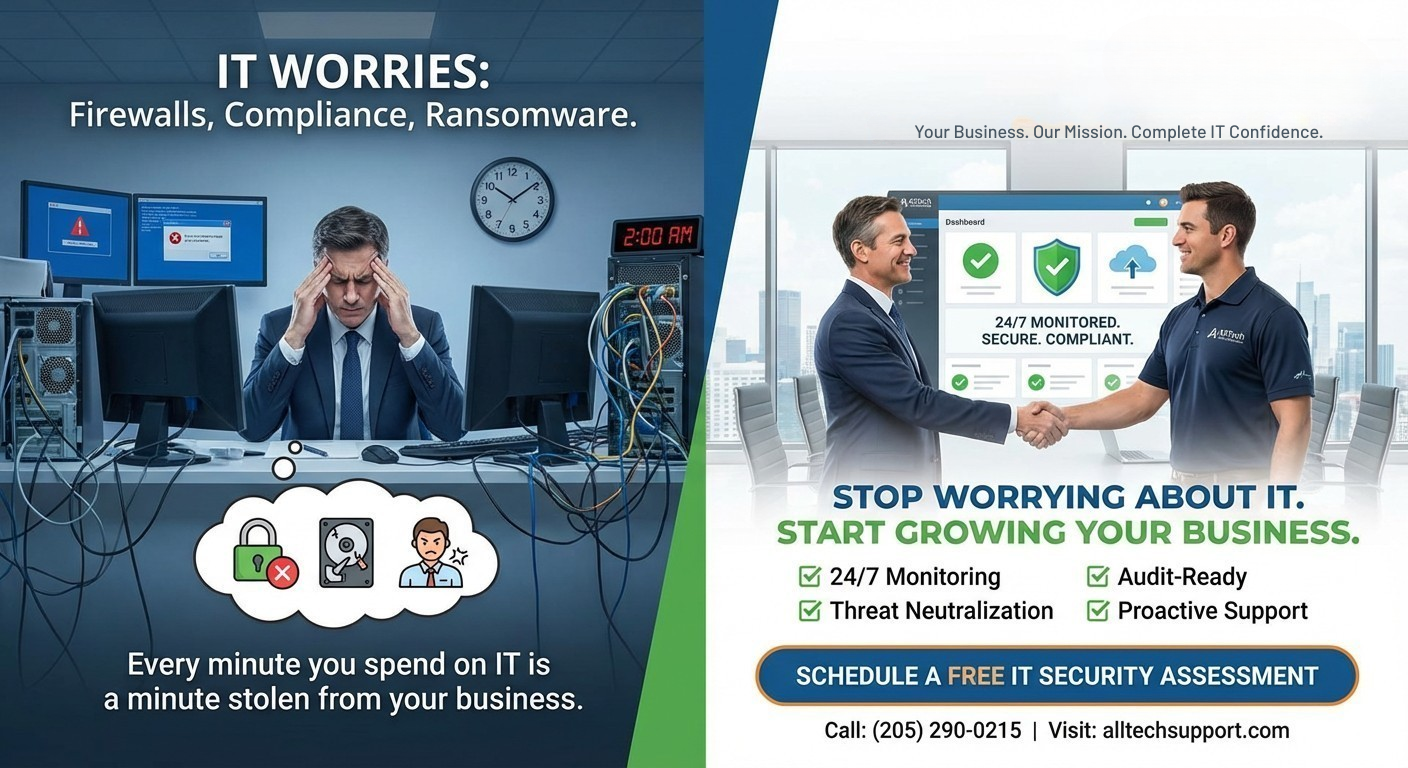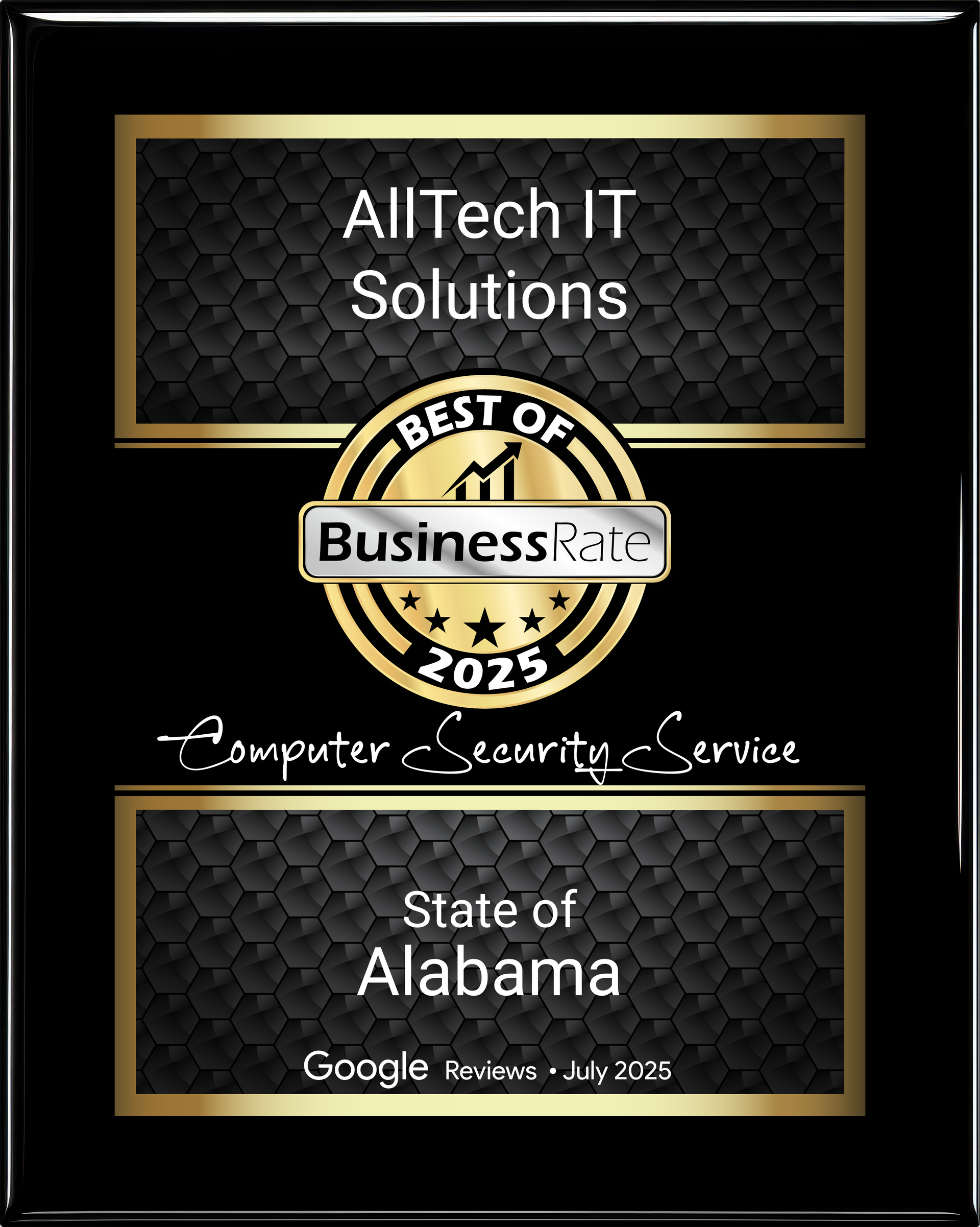Why You Need a Managed Service Provider
Is Your Business Running on Hope?
Why You Need a Managed Service Provider (And Probably Didn't Even Know It)
Look, every small business owner wears multiple hats. You're the CEO, the marketing director, the HR manager, and often—whether you like it or not—the IT department too. When your email goes down at 3 PM on a Friday, guess who's frantically Googling solutions? You. When your employee's laptop decides to crash right before a major client presentation, you're the one scrambling to find a repair shop that's actually open. And when you get one of those suspicious emails that might be phishing (or might not be, who knows?), you're left wondering if your entire network just got compromised.
Sound familiar? You're definitely not alone. Thousands of small and medium-sized businesses operate exactly like this every day, treating tech problems as occasional fires to put out instead of, you know, critical infrastructure that actually requires professional management. Here's the thing: you probably need a Managed Service Provider (MSP). You just haven't realized it yet.
So What Exactly Is a Managed Service Provider Anyway?
Before I get into why your business needs an MSP, let's talk about what one actually is. Because honestly, the term gets thrown around a lot.
A Managed Service Provider is basically a third-party company that remotely manages your IT infrastructure and all those end-user systems on a proactive basis. Unlike the old-school break-fix IT support where you only call someone when stuff breaks (and then wait, and pay through the nose), an MSP takes ongoing responsibility for monitoring, managing, and maintaining your entire technology environment.
MSPs typically work on a subscription or monthly fee model, which means predictable costs instead of those nightmare invoices when disasters strike. They monitor your systems 24/7, apply security patches, manage backups, provide help desk support, and make sure your technology actually works—often before you even know something could've gone wrong.
Modern MSPs have evolved way beyond simple network monitoring. We're talking comprehensive cybersecurity services, cloud infrastructure management, data backup and disaster recovery, strategic technology planning—the whole nine yards. They basically function as an outsourced IT department for businesses that can't justify the expense of building a full in-house team.
The Hidden Cost of Going It Alone (Spoiler: It's More Than You Think)
Most small business owners massively underestimate the true cost of managing IT internally. Or worse, not managing it at all. Let me break down what you're actually paying when you don't have professional IT management:
Downtime Losses
When your systems go down, your business stops making money. Period. Research shows that even just a few hours of downtime can cost small businesses thousands of dollars in lost productivity, missed sales, and customers who get annoyed enough to go elsewhere. Without an MSP, the average small business experiences way more downtime than necessary because issues don't get caught early and fixes take forever.
Here's a scenario I've seen play out too many times: Your server crashes on a Monday morning. Without an MSP, you first gotta figure out what's wrong, then find a technician who's actually available, wait for them to show up, hope they can fix it quickly, and potentially order replacement parts if hardware failed. This whole process could take hours or even days. An MSP, though? They would've been monitoring that server, probably would've predicted the failure before it happened, and either prevented it completely or had a backup system ready to go immediately.
Security Vulnerabilities
This is probably the scariest hidden cost. Small businesses face the same sophisticated cyber threats as big enterprises, but without any of the security infrastructure to defend against them. A lot of small business owners think they're "too small to be targeted."
Wrong. So wrong.
Cybercriminals actually target small businesses specifically because they lack robust security. You're easier pickings. MSPs implement enterprise-grade security—firewalls, intrusion detection, regular vulnerability assessments, security training, 24/7 monitoring. These are things that would cost a fortune for a small business to implement on their own, but become affordable when delivered through an MSP's shared service model.
Inefficient Technology Investments
Without expert guidance, small businesses make terrible technology investments all the time. You might buy software licenses you barely use, invest in hardware that doesn't actually meet your needs, or completely miss out on cloud solutions that could save you money and make everything more flexible. MSPs provide strategic technology planning as part of their service, making sure every dollar you spend on tech actually delivers value.
Employee Productivity Drains
When employees hit technology problems, they've got two options: struggle through it themselves or stop working to troubleshoot. Either way, productivity tanks. MSPs provide responsive help desk support, usually resolving issues way faster than your employees could figure it out themselves. Less frustration, less downtime, more time spent on actually making money.
Seven Signs You Need an MSP (Even If You Think You're Fine)
Still not convinced? Here are seven warning signs that your business desperately needs managed IT services:
1. You Honestly Can't Remember the Last Time You Updated Your Software
Software updates aren't just about shiny new features—they're critical security patches that protect your business from known vulnerabilities. If you're running outdated software because updates are "too disruptive" or you "haven't gotten around to it," you're basically leaving your front door unlocked in a sketchy neighborhood. MSPs schedule and implement updates during off-hours, so your systems stay current without messing up your workday.
2. Your Backup Strategy Is Literally "Hope Nothing Bad Happens"
Do you have a comprehensive data backup system? Can you actually recover your critical business data if disaster strikes? More importantly, have you tested your backups to make sure they work? If you answered "no" to any of these, you need an MSP. Like, yesterday. Data loss from ransomware, hardware failure, natural disasters, or someone accidentally deleting the wrong folder can destroy a small business overnight. MSPs implement automated backups, store them locally and in the cloud, and regularly test them to ensure your data is actually protected.
3. You're Making Technology Decisions Based on Google Searches
Look, there's nothing wrong with doing research. But when your entire technology strategy consists of Googling solutions to whatever fire you're currently fighting, you're being reactive instead of strategic. MSPs bring expertise across multiple industries and platforms, helping you make informed decisions that align with your business goals rather than just solving today's crisis.
4. You Have No Clue Who Has Access to What
Employee onboarding and offboarding often reveal serious security gaps. Does your former employee from three years ago still have access to company email? Can your summer intern access the same files as your CFO? Yeah, that's a problem. MSPs implement proper access controls, user permission management, and security policies that ensure the right people have the right access—and only that access.
5. Your "IT Person" Is Actually Your Office Manager (Or Your Nephew)
Many small businesses rely on whoever happens to be "good with computers" to handle IT stuff. And while this person may be talented and well-intentioned, they probably lack the comprehensive training, certifications, and experience needed to properly secure and maintain a business network. MSPs employ certified professionals who specialize in business IT and stay current with rapidly evolving threats and solutions.
6. You're Growing But Your Technology Isn't
Business growth is exciting! But it puts enormous strain on technology infrastructure that wasn't designed to scale. If you're adding employees, opening new locations, or expanding your services but your technology hasn't evolved accordingly, you're creating bottlenecks that will strangle your growth. MSPs proactively plan for scalability, ensuring your tech can actually support your ambitions.
7. You Lie Awake at Night Worrying About Technology Disasters
If you regularly worry about data breaches, system failures, or tech disasters, that's your gut telling you something's wrong. You shouldn't have to be a technology expert to run a successful business. MSPs provide peace of mind, letting you focus on what you're actually good at while knowing your technology is in expert hands.
What to Expect When You Partner with an MSP
If you've recognized your business in any of the scenarios above, you're probably wondering what working with an MSP actually looks like. Here's the typical experience:
Comprehensive Assessment
A good MSP starts by doing a thorough assessment of your current technology setup. They'll inventory your hardware and software, evaluate your security, review your backup procedures, and identify vulnerabilities and inefficiencies. This becomes the foundation for a customized service plan.
Proactive Monitoring and Maintenance
Once you're onboarded, the MSP deploys monitoring tools across your infrastructure. These tools continuously track system health, performance, security events, and potential issues. When problems get detected, the MSP can often fix them before they impact your operations. Regular maintenance like software updates, security patches, and system optimization happens automatically on schedule.
Responsive Support
When employees run into tech issues, they contact the MSP's help desk instead of bugging their coworkers or wasting time trying to figure it out alone. Most MSPs offer multiple support channels—phone, email, online portals—with response time guarantees based on how critical the issue is.
Strategic Planning
Beyond day-to-day support, MSPs serve as technology advisors. They help you plan for future needs, evaluate new solutions, and make smart technology investments. They bring industry expertise and best practices from working with tons of different businesses, giving you insights you wouldn't have otherwise.
Predictable Budgeting
MSP services usually operate on a monthly subscription with a fixed fee based on number of users, devices, or service level. This makes technology costs way easier to budget and eliminates those surprise bills from emergency repairs or security incidents.
The MSP Investment: Cost vs. Value
One of the biggest objections I hear about MSPs is cost. The monthly fee can seem pretty substantial, especially compared to your current approach of handling IT informally or only calling a tech when something's on fire. But this perspective completely misses the true cost of your current situation.
Think about what you're actually spending on technology right now when you account for everything: emergency IT calls, employee time lost to tech problems, productivity losses from downtime, the risk cost of terrible cybersecurity, inefficient tech purchases, and the opportunity cost of your own time spent managing IT instead of growing your business.
When you honestly calculate these hidden costs, most small businesses discover that professional MSP services actually cost less than their current informal approach—while delivering way better results.
Choosing the Right MSP for Your Business
Not all MSPs are created equal. Finding the right partner is crucial. Here's what to look for:
Find an MSP with real experience serving businesses in your industry and size range. Ask about their service level agreements, response time guarantees, and what happens if they don't meet those commitments. Check out their security credentials and certifications—good MSPs employ certified professionals with credentials like CompTIA Security+, CISSP, and Microsoft certifications.
Ask about their monitoring tools, backup solutions, and disaster recovery capabilities. Request references from current clients, especially those in similar industries. Make sure they can actually explain technical stuff in normal business terms. And ensure they offer scalable solutions that can grow with you.
Making the Transition
The idea of transitioning to an MSP can feel overwhelming, but good providers make it pretty smooth. Most MSPs phase in their services gradually, starting with critical stuff like backup and security before expanding to comprehensive management. This minimizes disruption while quickly addressing your biggest vulnerabilities.
During the transition, expect some learning curve as your employees adapt to new procedures and support channels. But most businesses report that after a brief adjustment period, working with an MSP actually simplifies their tech experience rather than complicating it.
The Bottom Line
If you're a small or medium-sized business owner treating technology as a necessary evil instead of a strategic business asset, you almost certainly need an MSP—even if you haven't realized it yet. The real question isn't whether you can afford managed IT services. It's whether you can afford to keep operating without them.
Every day without proper IT management is another day you're vulnerable to data loss, security breaches, productivity drains, and competitive disadvantages. Meanwhile, your competitors who've embraced professional IT management are operating more efficiently, more securely, and more strategically.
The technology landscape is only getting more complex, security threats are only getting nastier, and the competitive advantages of proper IT management are only increasing. The best time to partner with an MSP was yesterday. The second-best time is right now.
Stop hoping nothing goes wrong and start making sure everything goes right. Your business—and honestly, your sanity—are worth it.
Stop Holding Your Business Together with IT Duct Tape
Get a real IT plan, 24/7 monitoring, tested backups, and security that actually works.
Book a 15-minute consult
Link: https://www.alltechsupport.com/contact-alltech-it-support#BookAMeeting
Or call 205-290-0215
Works Cited
Atlantic.Net. "What Is a Managed Service Provider? A Brief Guide to MSPs." Atlantic.Net, www.atlantic.net/vps-hosting/what-is-managed-service-provider-brief-guide-msps/. Accessed 13 Oct. 2025.
CrowdStrike. "What is a Managed Service Provider (MSP)?" CrowdStrike, www.crowdstrike.com/cybersecurity-101/managed-service-provider-msp/. Accessed 13 Oct. 2025.
Synoptek. "What is a Managed Service Provider (MSP)?" Synoptek, www.synoptek.com/insights/it-services/managed-it-services/what-is-msp/. Accessed 13 Oct. 2025.
TechTarget. "What is a Managed Service Provider (MSP)?" TechTarget, www.techtarget.com/searchitchannel/definition/managed-service-provider . Accessed 13 Oct. 2025.
Trend Micro. "What Is a Managed Service Provider (MSP)?" Trend Micro, www.trendmicro.com/en_us/what-is/managed-service-provider.html . Accessed 13 Oct. 2025.












